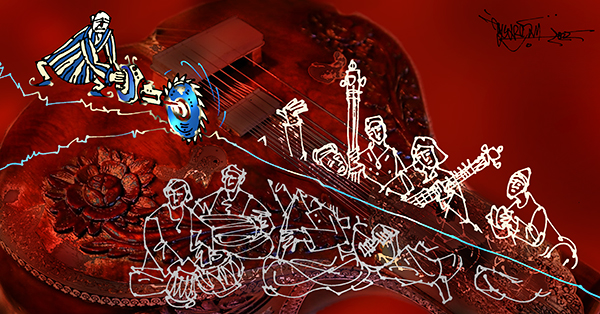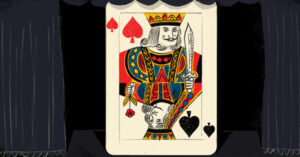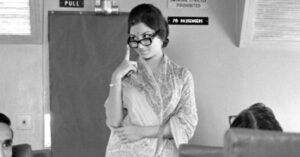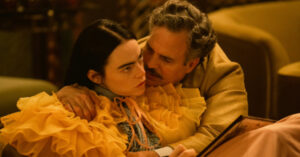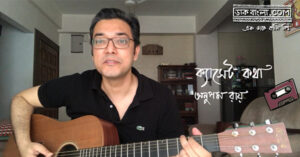The Era of Self-Proclaimed Musicologists
Reportage on the arts and reviews of music concerts in newspapers and publications in the country have gradually dwindled to the point of near extinction. In the past though, such reviews and reports were eagerly awaited, particularly by young, aspiring artistes for whom a favorable review or even a brief mention or photograph in the arts pages of newspapers meant a great deal.
In the early eighties of the last century, around the time that I started singing professionally, I recall almost every noteworthy news publication across the country maintaining an association with a music critic and featuring regular reviews and reports in their arts pages. Some music critics acquired quite a reputation and commanded great awe and respect among artistes, although one also heard of the occasional public spat between critics and artistes, when artistes usually of some stature and experience took on critics publicly for what they perceived as unwarranted criticism or an inaccurate and ill-informed assessment of their performance. In all probability, both artistes and critics have been at fault on different occasions and therefore, it would be ill-advised to tar them with the same brush, but here are a few interesting memories about music critics that I recall from personal experience and observation. I am choosing to not reveal any names for one fairly obvious reason, namely, that this country seems to be losing its sense of humour in general.
However, none of these anecdotes are fictional. They are being recalled from actual personal observation and experience.
In the national capital, there once lived a particularly belligerent and knowledgeable music critic whose blunt, barbed reviews even of star musicians often sent shock waves through the music community. How could he possibly say this about an artiste of such immense standing, everyone asked each other in disbelief. Some even believed that he did so on purpose to rile artistes and bring them down a notch or two in a show of pen-power. Unruffled and unrepentant, said music critic continued to barge into music concerts, spewing venom-in-print occasionally against artistes he chose to target. However, other than his aggression and hostile reviews, he possessed another greatly magical quality – namely the ability to be omnipresent ! He accidentally revealed this quality to the world at large by reviewing two or more concerts that took place on the same day, at exactly the same time and in the same city but at different venues. Had he chosen to review only the first performance at one concert, and the second or third performance from another event at a different location, his ability to be omnipresent or share himself in order to serve the cause of music would have remained a closely guarded secret. In order to keep his magical I-am-everywhere-ness under wraps, the gentleman had devised a strategy. He would write the two reviews for different publications, one under his ‘good’ name and the other either with initials, or with a byline for his spouse. No one ever saw his gentle spouse at concert venues, so he either carried her in his pocket or in the large shoulder bag he brought to concerts, or then she remained invisible to the human eye ! After all, we do live in a land of miracles, and Mr. Critic proved that yet again.
In current times, the tribe of music critics has also dwindled because most publications have stopped featuring arts and music other than for paid or sponsored publicity. The few critics that still soldier on in the field of Hindustani classical music at times prefer to call themselves self-acclaimed musicologists. But if self-acclaimed ustads and pandits can flourish, why grudge self-proclaimed musicologists their moment of glory ? Nevertheless, their writing is fraught with several problems.
Yet another equally irritable, supposedly knowledgeable and greatly feared music critic installed in the national capital, was given to writing expansive, long-winded columns that ran into marathon word counts. The only glitch was that almost invariably, the actual review was confined to a few sentences at the end of a run up of almost half a page of bombastic comments and detailed descriptions of largely irrelevant and unnecessary details. For example, an entire paragraph on the swing of a female vocalist’s jhumka or dangling ear-rings was common, but could hardly be considered informative or informed critiquing of the concert. Naturally, he continued to write undeterred for the publication he was associated with, and several artistes bowed and scraped in his presence in the hope of receiving favourable reviews. But one fine day he made the cardinal mistake of reviewing a concert in absentia, depending on information provided by a possibly mischievous source who chose to not provide accurate information. As a result, readers and music lovers were treated to a review that carried scathing comments on the performance of a leading tabla player who was scheduled to accompany the main artiste but failed to do so on account of his train to Delhi being inordinately delayed. There was no hiding the fact that the critic had not been present in the audience and had relied on completely inaccurate information provided by someone else. No miracles occurred this time, and for some time readers were spared the elaborate jhumka, kurta, sari descriptions by the said critic.
In current times the tribe of music critics has also dwindled because most publications have stopped featuring arts and music other than for paid or sponsored publicity. The few critics that still soldier on in the field of Hindustani classical music at times prefer to call themselves self-acclaimed musicologists. But if self-acclaimed ustads and pandits can flourish, why grudge self-proclaimed musicologists their moment of glory ? Nevertheless, their writing is fraught with several problems. Many reviews are still written without the ‘musicologist’ being present for the event in person. Sometimes recordings are referred to, but in that case, it should be clearly mentioned in the interest of transparency that a recording of the actual event is being reviewed and that the author was not present during the performance. Often organisers also arrange for musicologists to be flown in for concerts and festivals. In such cases, how possible would it be for a beneficiary of the organiser’s hospitality to write an unbiased review of the festival or event? We are also witnessing the inclusion of these self-appointed musicologists on jury committees of several organisations, and some even fulfil the roles of curators and selectors for various organisations and events. How ethical is it for the same individual to curate an event, select the participating artistes, and then write a glowing review of the same event for a publication? And even if for a moment we were to accept that not all of them write reviews for the events that they curate, is it still ethical to do so given the fact that they may see the curatorial skills of others at variance with their own or of a lesser grade. In a society where ethics and integrity are of little consequence, this may not constitute a conflict of interest. But a spade should ideally be called a spade.
Illustration by Suvamoy Mitra
